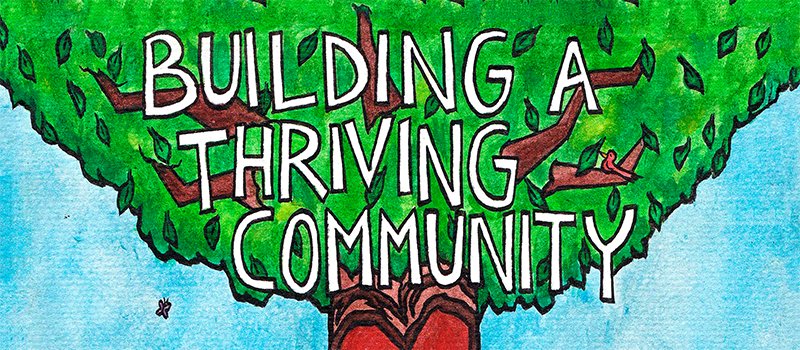Living on the border of social justice in La Crosse

Original art by Annemarie Erb Barrett, AEB Art
By Raymond List, FSPA affiliate
I have the privilege of providing transportation for Jose, a man who immigrated to the United States more than 20 years ago. Jose has been a member of America’s workforce throughout this time, primarily in livestock processing, supporting not only himself but the country’s economy too. Jose is disabled as the result of a medical condition that, because he did not have access to adequate health care (despite his employment), was left untreated.
Volunteering at Centro Latino, a subgroup of Coulee Region Immigration Task Force, missioned to provide “hospitality, support and loving service to Spanishspeaking people” in La Crosse, Wisconsin, is a ministry I serve as an affiliate of the Franciscan Sisters of Perpetual Adoration. This work is part of FSPA’s mission of justice and peace — holding the sacredness of each person, regardless of origin. Through our collaboration with Centro Latino, Jose has better access to housing, food and, to some extent, health care.
Jose and I go shopping on a weekly basis. By journeying with him to the grocery store, I have been granted the privilege of getting a glimpse of his passage, his story, as a member of our community living and working so far away from his home. I have learned quite a bit about the culture of Jose’s parent country and his life working hard as an immigrant in the U.S. His employment history
includes several hard-labor jobs, which many Americans do not wish to do, as a means to financial stability. Our discussions help me better understand, to a limited degree, the experience of my own immigrant ancestors just a few generations ago.
We also talk about our hopes and dreams for the future. Jose’s biggest wish is to regain his health and return to work, which he has been unable to do for more than five years. Without more comprehensive health care benefits, it is not likely to come true.
Yet each day, Jose manages his health the best he can and makes his life as cheerful as possible.
There is a lot of talk about the situation “at the border” and people wishing to go down “to the border” to provide assistance, which is a good thing to do. However, I would offer that the border is not just a place, but rather a way of living for many people in the United States. Jose lives on the border of social injustice in La Crosse. And there are countless other immigrants — in La Crosse and throughout the U.S. — who live with Jose on the border of insecurity and instability.
So one does not have to go far to meet people living “on the border” or “on the margins.” Jesus often spent time in such areas when he was feeling pressured to leave his own society. His interaction with the Canaanite woman, whose faith so astounded him, occurred when he was removing himself from a conflictual situation (Matthew 15:21-28). His conversation with the Samaritan woman at the well also took place when he was feeling pressured to leave (John 4:1-42). So at times in his life when he was forced “to the border,” he found the sincerest expressions of faith by other people who were also living “at the border.”
This is what I have experienced with Jose, who continues to hope for a better day while focusing on remaining a healthy, cheerful person. I encourage all readers to take some time to get to know our neighbors who have been forced to live on the margins or emotionally “at the border.” This may help transform your life and faith as well.
Raymond List, who resides in La Crosse, Wisconsin, has been an affiliate of the Franciscan Sisters of Perpetual Adoration for 10 years. Ray is a member of the FSPA Earth Tenders Companion Community.
